A look back on our conference "European Citizenship in Challenging Times"

date: 31/05/2016 - 01/06/2016
The event was presented by the Vice Rector of the University of Barcelona, Carme Panchón, together with the director of the European Observatory on Memories, Jordi Guixé; the Deputy Director-General of Justice and Consumer Affairs of the European Commission, Francisco Fonseca Morillo; and the General Director of Cooperation in Catalonia, Manel Vila.
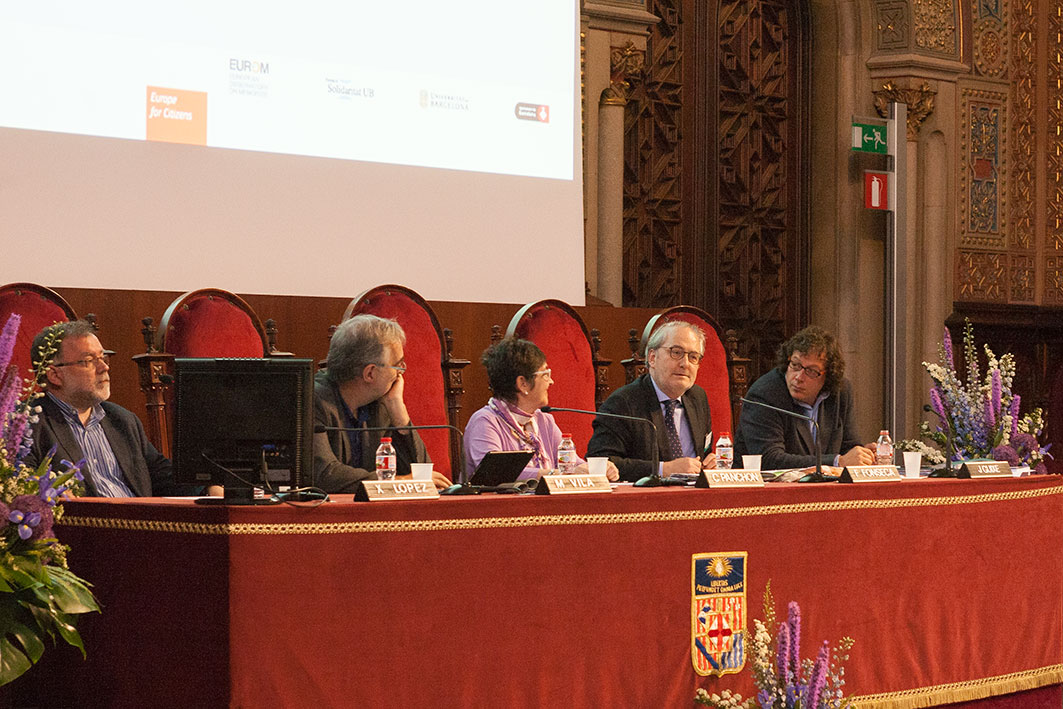
From right to left: J. Guixe, F. Fonseca Morillo, Carme Panchón, and M. Vila - © Teresa Estrada / European Commission
During her introduction, Carme Panchón (University of Barcelona) underlined that public participation is a necessary element to articulate social and political changes within the European Union.
Jordi Guixé (European Observatory on Memories) stated that memory is a central issue of civic and democratic values, "a transforming agent," which reminds us of the "resistance to violence and exclusion”. He highlighted the need to observe memorial conflicts in a transnational and transdisciplinary way, opening new doors to the memorial processes of the present and the future.
Francisco Fonseca Morillo (Deputy Director-General of Justice and Consumers of the European Commission) focused on the relevance of civic involvement and the need to promote a sense of belonging to make way “for a true European Society”. To him, this can only become a reality if Europe is able to boost “bottom up processes” for direct partaking. “Citizenship demands participation”, he stressed.
Manel Vila (General Director of Cooperation in Catalonia), underlined that European identity should be considered as fluid and complex as Europe itself. “Being European means to have different identities merged all together into one”, observed Vila, who also asked for more generosity for refugees. "I cannot forget the silence on Sarajevo," he said. "One day the same will happen with the current refugee crisis."
Opening Keynote
Adam Michnik, human rights activist and founder editor of the Polish newspaper Gazeta Wyborzca, introduced the conference in the opening keynote.
“Europe can only be saved by European citizens”
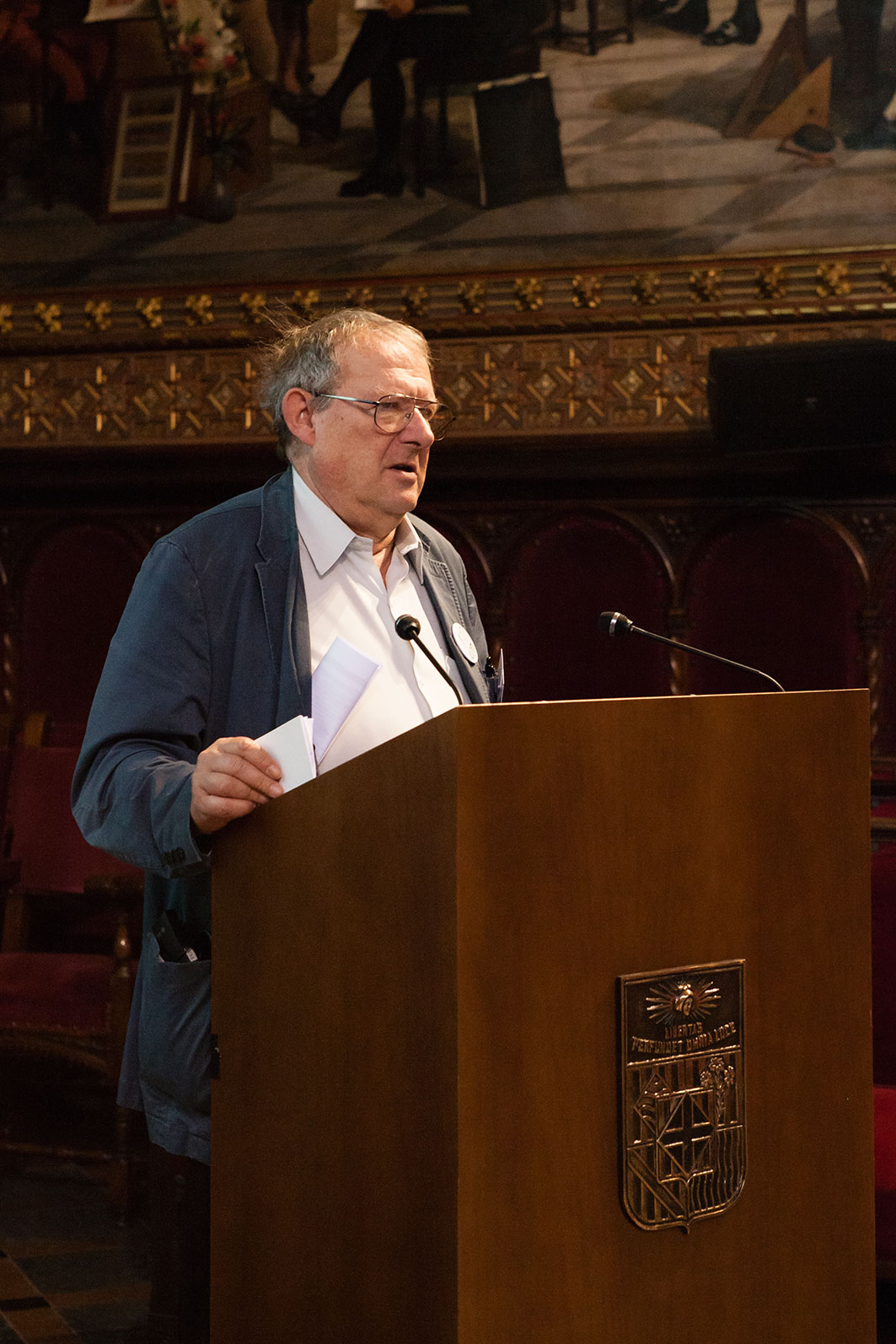
Adam Micknik - © Teresa Estrada / European Commission
“What Michnik always argued and advocated for was that political and social change has to be based on the respect towards the others”, remarked Pavel Tychtl (European Commission) as he introduced Adam Michnik. The Polish historian addressed the attendees with a strong concern about the revival of nationalisms and extremisms in Europe. According to Michnik, Europe is living in difficult times that resemble those of the twentieth century. “We are seeing again the demons of the 30’s”, he remarked.
“Democracy, and its meaning, is a very delicate establishment”, he said, arguing that “we should not undermine and undervalue the fact that it may lose”. To face this reality, the Polish historian encouraged the audience to recall the past and remember the discourse of the “great utopies” of the twentieth century. “If today we hear similar stories about the annihilation of the European Union, we must remember how that ended”, remarked Michnik. Taking these challenging factors into consideration, he pointed out the need to surpass European nationalist claims and working for a common purpose through participation, accountability and openness. “Europe can only be saved by European citizens”.
Panel Session and Discussion on Membership : How to foster identification with the European Union?
“We need to give citizens a real role”
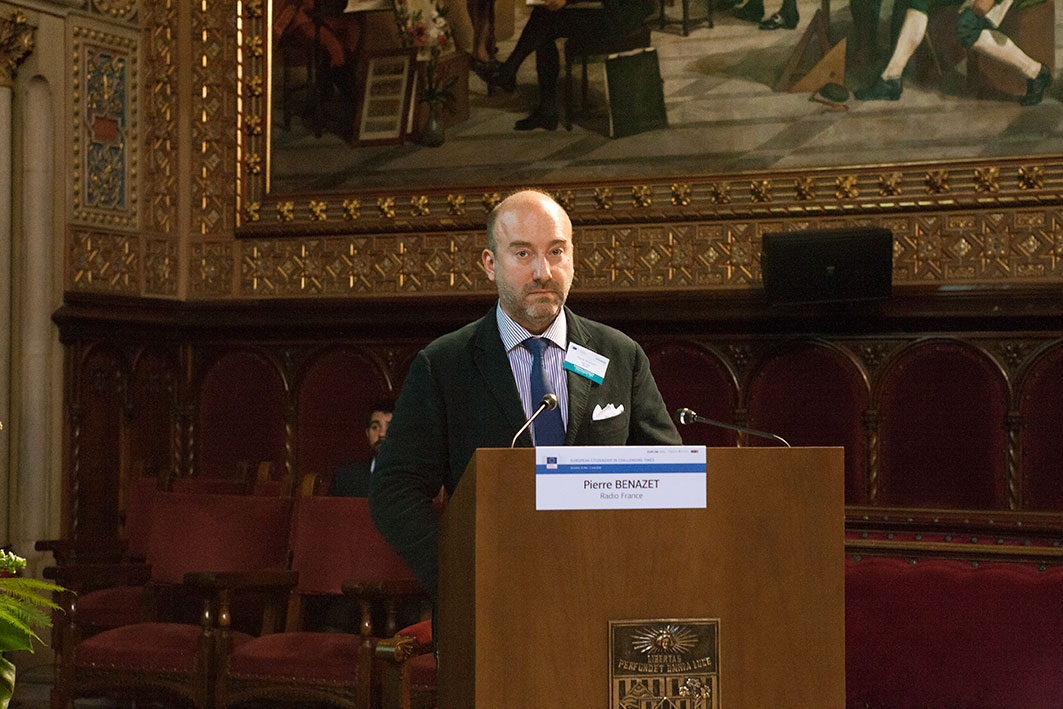
Pierre Benazet - © Teresa Estrada / European Commission
According to a recent Eurobarometer result, only 6% of European citizens define themselves as Europeans before referring to their national identities. With this data, Pierre Bénazet (Radio France International) launched the first debate session of the conference. According to Bénazet, the data reminded him of the situation in former Yugoslavia, where less than 6% of the population had a sense of belonging to their country. He stressed that, while speaking of membership and citizenship, the focus of the debate would be to try to “find a way to help the citizens of the European Union to feel they are part of this Union; that they are part of a real citizenship”.
This sense of belonging, fostered through education and remembrance, was the main point proposed by the Polish journalist and writer Grazyna Plebanek. For Plebanek, the transmission of memory and education are key factors, needed in order to truly include people in a European distinctiveness that recognizes their complex and multicultural realities. “Reducing identity to only one element is just a trick used by populist politicians”, she observed.
The geographer and former French Ambassador Michel Foucher (College of World Studies) talked about the need for a “joint process” that takes into account “the wishes and expectations of the citizens and nations of Europe”, bringing the European institutions closer to European citizens. Foucher called for more “political commitment by leaders” and for a more “global” Europe. “To improve identification we have to take the long view and accept that European Union is only an answer to a specific geopolitical context”.
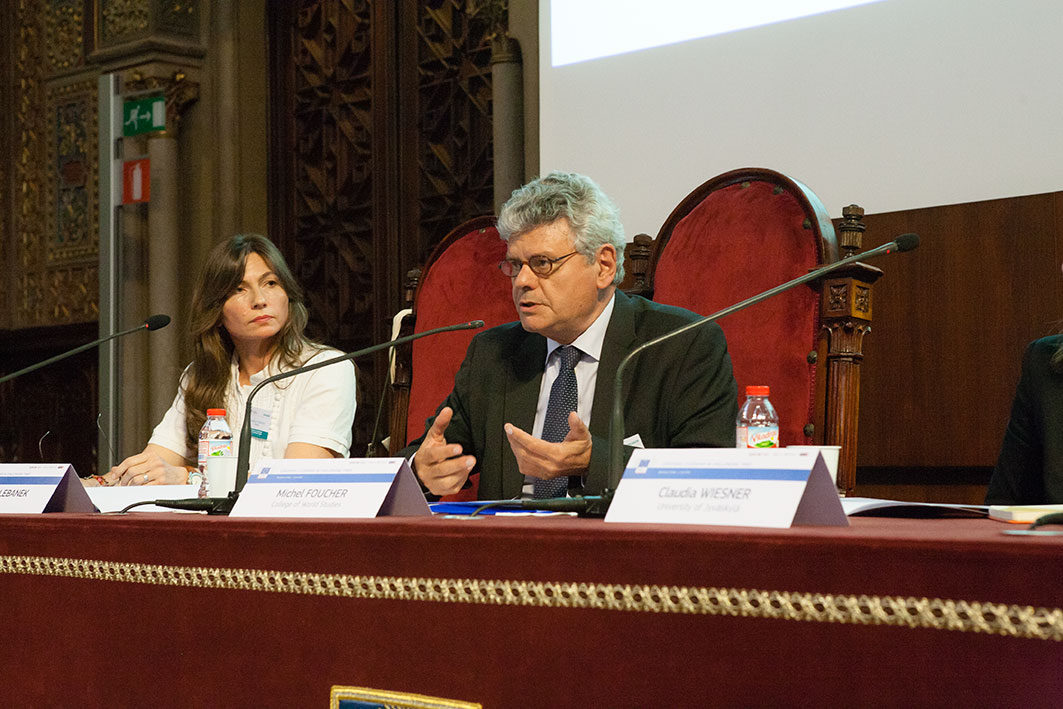
Grazyna Plebanek and Michel Foucher - © Teresa Estrada / European Commission
For Claudia Wiesner (University of Darmstadt and University of University of Jyväskylä), debate is the fundamental method for achieving a true democracy. “Democracy is about debate”, she asserted. Wiesner reminded the audience that “we have had serious breaches of the quality standards of national representative democracies” and one of the ways to improve this situation is to open the debate, to hear the voice of the people. “Those standards need to be strengthened”, concluded Wiesner.
Paul Blokker (Charles University of Prague) highlighted the need for European citizens to experience a Union to facilitate true involvement in a transnational community. “The experiences of Europeans should be related with Europe”, he said. Blokker also talked about the importance of listening to the public debate in order for it to have a real effect on European decisions. “We need to give citizens a real role”, he claimed.
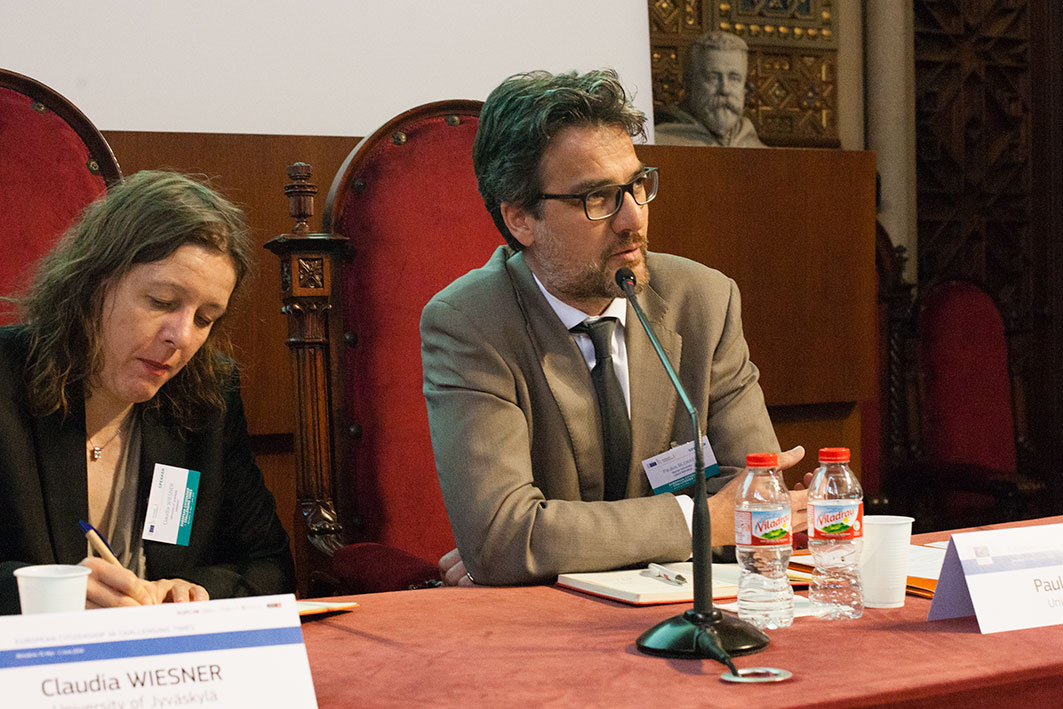
Claudia Wiesner and Paul Blokker - © Teresa Estrada / European Commission
Panel Session and Discussion on Protection : How to consolidate the European Union’s achievements and strengthen the Union’s citizens’ rights ?
“It’s not about doing policy for people but doing it with people”
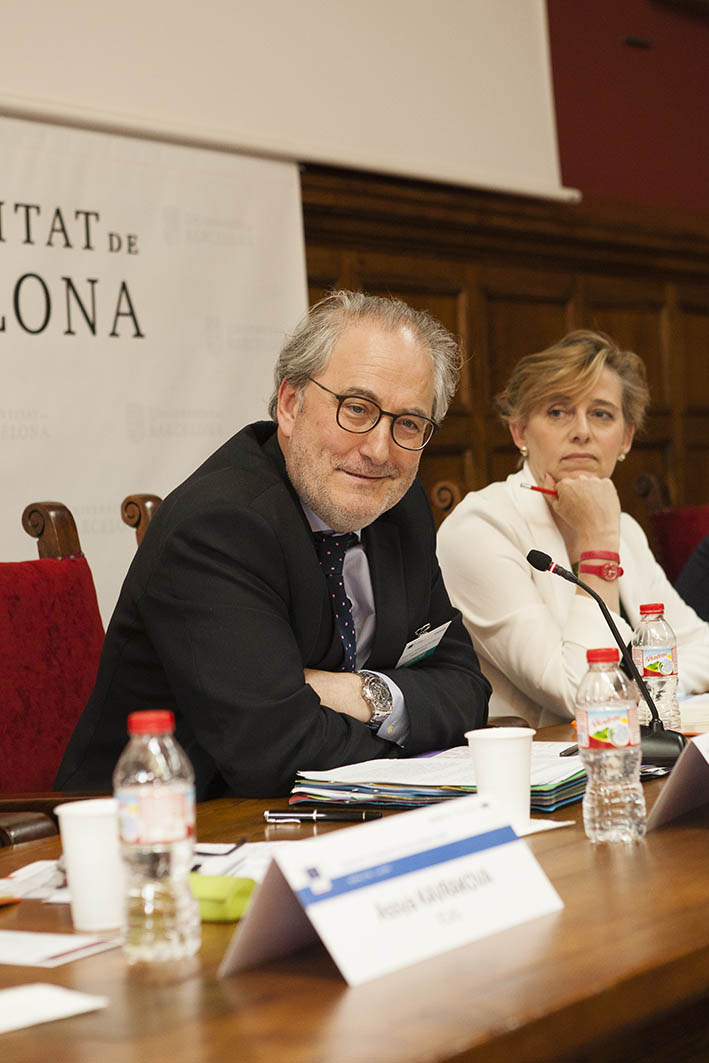
Antonella Valmorbida and Francisco Fonseca Morillo - © Teresa Estrada / European Commission
Moderator Antonella Valmorbida (European Association for Local Democracy) summarized the most resonating points of the session: the European Union’s achievements and how to consolidate them, how to ensure citizens’ rights and how to confront the current threats to the European Union’s stability. According to Valmorbida, the “European Union, like democracy, is not an achievement but a process where we build step by step the community we want”. To her, discussion is a fundamental issue to “preserve and maintain our big project”.
Francisco Fonseca Morillo (Deputy Director-General of Justice and Consumers of the European Commission) stressed that education and in particular, information constitute citizens’ main tool to truly embrace their opportunities and rights within the European Union. “Citizens have a lack of information regarding their own rights”, he remarked. On how the Union may better engage with the European citizens, Fonseca stated that “we need real democratic participation through pan-European campaigns for the European parliamentary elections”.
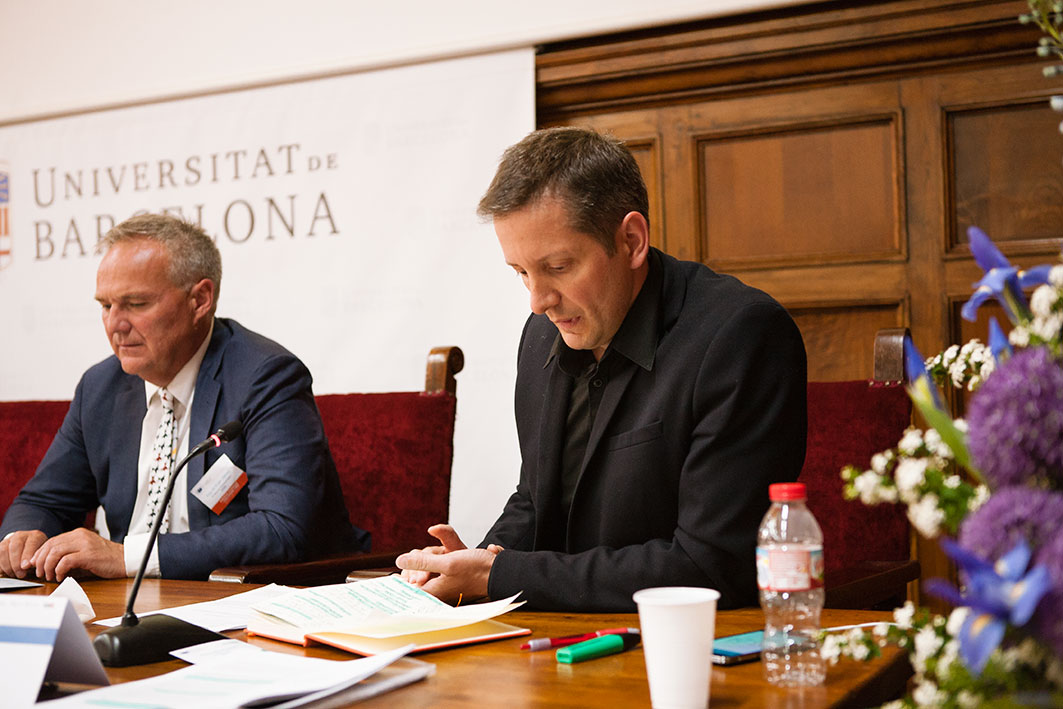
Friso Roscam-Abbing and Pierre Baussand - © Teresa Estrada / European Commission
Friso Roscam-Abbing (Head of Fundamental Rights Promotion Department at the Fundamental Rights Agency) warned that “mere information” might become propaganda. This is the reason why “rights awareness must go beyond mere information”. To do that, he stressed the need to learn to dialogue. “We need to cooperate better, learning to better listen to each other”.
Pierre Baussand (Director of the European Social Platform) spoke similarly of the need to increase popular participation. “It’s not about doing policy for people but doing it with people”. Furthermore, Baussand demanded more accountability and transparency from member states. “We need to promote better legislation to engage our governments in the decision-making”. In conclusion, Baussand affirmed that the solution would come “by engaging people outside this room”, making sure they understand the European Union and approaching “the kind of right they want to see achieved”. He also stressed the necessity of assuring that these rights are being taken into account by politicians.
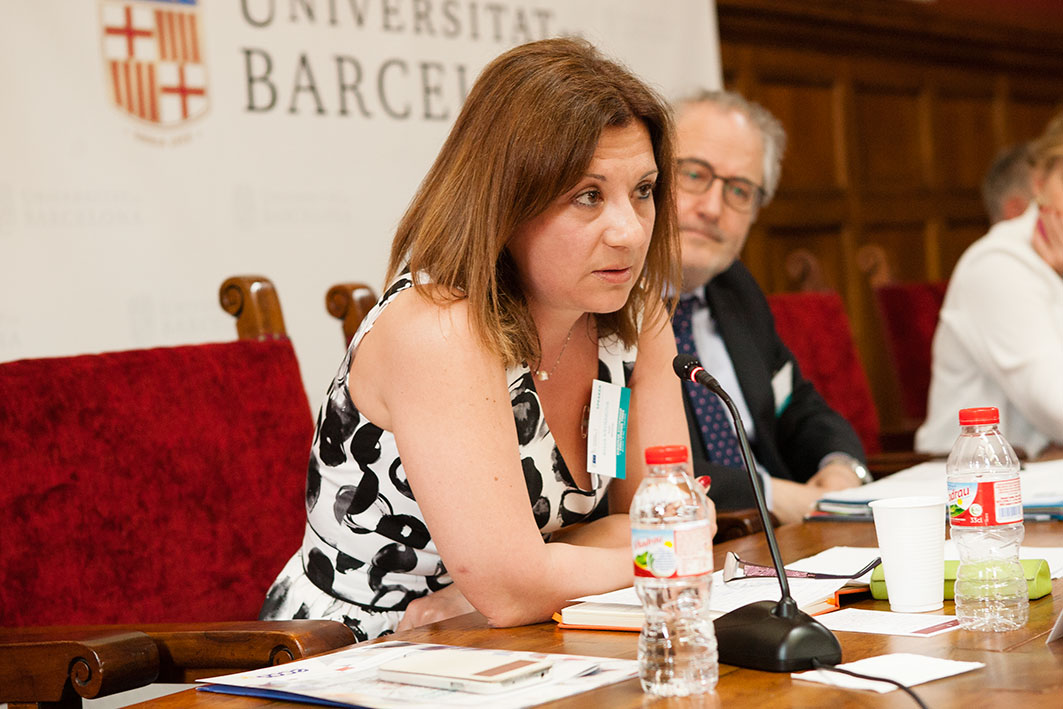
Assya Kavrakova - © Teresa Estrada / European Commission
To Assya Kavrakova (European Citizen Action Service) it is also necessary to have more commitment from politicians concerning protection. She called upon wisdom when selecting the needs that should be protected. “We have to safeguard, above all, the freedom of movement. It simply has a huge impact on Europeans’ everyday lives”, underlined Kavrakova. Kavrakova referred to citizens’ participation as an essential tool needed in order to completely benefit from their rights within the Union. “We need to have additional roles for citizens”.
The debate evoked questions on the proper transmission of information, equality, rights and migration within the European Union.
Panel Session and Discussion on Participation : How to build a Union that fully involves stakeholders and that encourages civic participation and democratic engagement ?
“We need to have citizens back in the democracy game both at national and European levels”
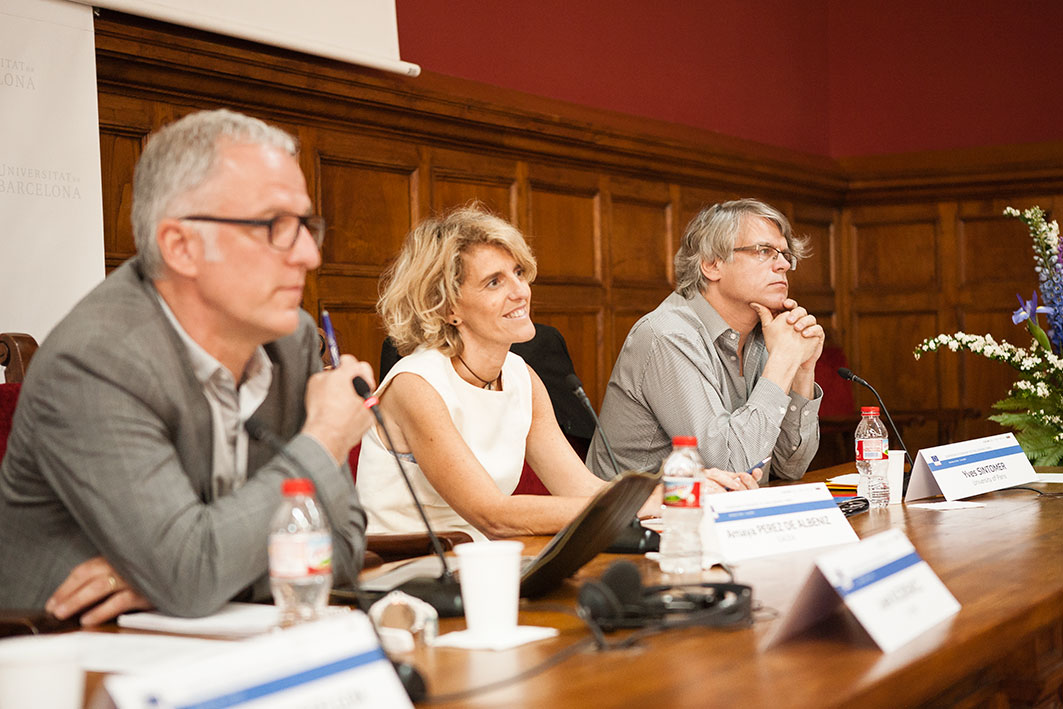
Jurek Kuczkiewicz, Amaya Perez de Albeniz and Yves Sintomer - © Teresa Estrada / European Commission
Jurek Kuczkiewicz (Le Soir) moderated the panel on participation and opened it by asking attendees whether they thought decision-making and citizens' participation had increased in the last five years in the European Union. The hands raised for “yes” were, as Kuczkiewicv observed “very few”. From that evidence, he invited the panelists to speak.
Amaya Pérez de Albéniz (Acting Head of Unit of Europe for Citizens, EACEA) indicated that progress in the European Union had indeed been made. She used the Europe for Citizens program as an example of it, asserting that this is “a small program with great impact”. On the other hand, she pointed to the difficulty of current times and lamented the low rates of European citizens’ sense of belonging. Nevertheless, Pérez de Albéniz asserted that it is possible to improve this situation.
According to Yves Sintomer's findings (University of Paris VIII), around 90% of his European students are neither satisfied with their political system nor with politicians. On the contrary, 90% of Sintomer’s Swiss students declare satisfaction with those issues in their country. This discrepancy, asserted Sintomer, reveals that Europe is “not democratic enough” and should open more channels of participation. “If we want to keep the beautiful European dream alive we have to change things”, he observed, remarking on the need to “change the conception of politics at the Union level”, direct democracy being part of it.
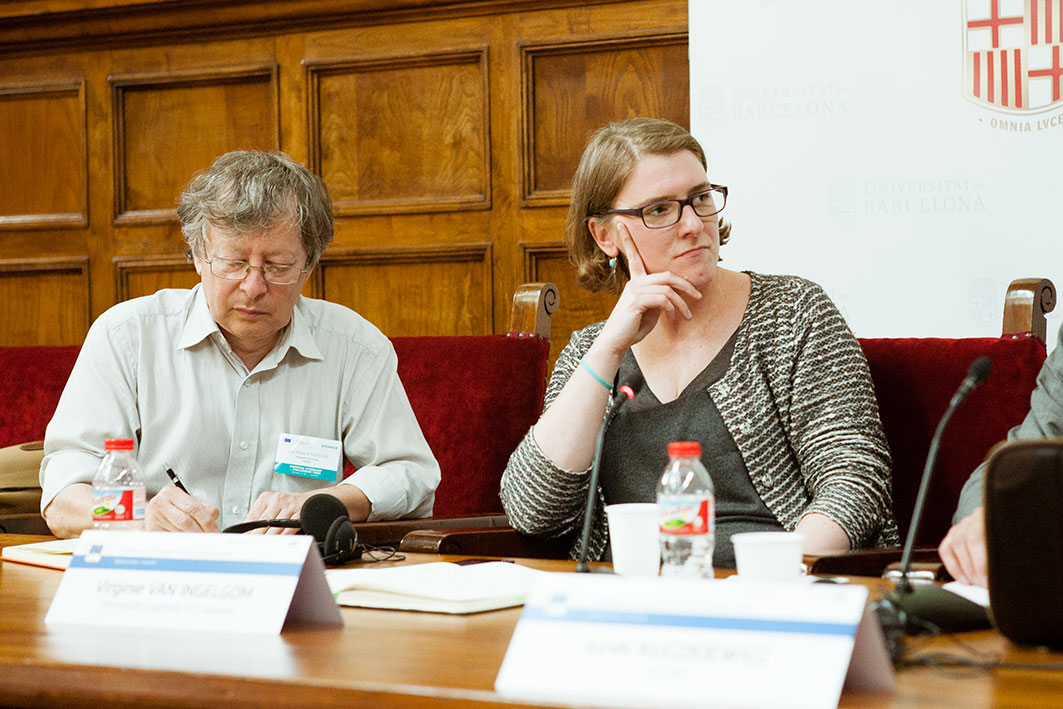
Virginie Van Ingelgom and Jan Robert Suesser - © Teresa Estrada / European Commission
Virginie Van Ingelgom (Catholic University of Louvain), author of Integrating Indifference: A Comparative, Qualitative and Quantitative Approach to the Legitimacy of European Integration (2014), discussed why indifference could be more dangerous than dissatisfaction. Van Ingelgom talked about “fatalism”, a term she used to describe citizens’ feeling of helplessness concerning today’s political development, which usually translates into people’s indifference or passivity. According to her, Europe “needs to have citizens back in the democracy game” both at national and European levels.
Recalling Van Ingelgom’s “fatalism”, Jan Robert Suesser (European Civic Forum) added that in the current situation, mainstream European and national politicians explain that “there is no alternative” in order to justify their policies. The solution, Suesser suggests, will come by working towards more equality, more solidarity, more inclusivity and more democracy. “These four words put in practice will be enough for us, activists, to say ‘we gained it’, it is worth participating”.
The debate covered issues concerning basically the European current participation system and its actual legislation.
Concluding remarks
“The European Union can be stronger if the voices of citizens are listened to”
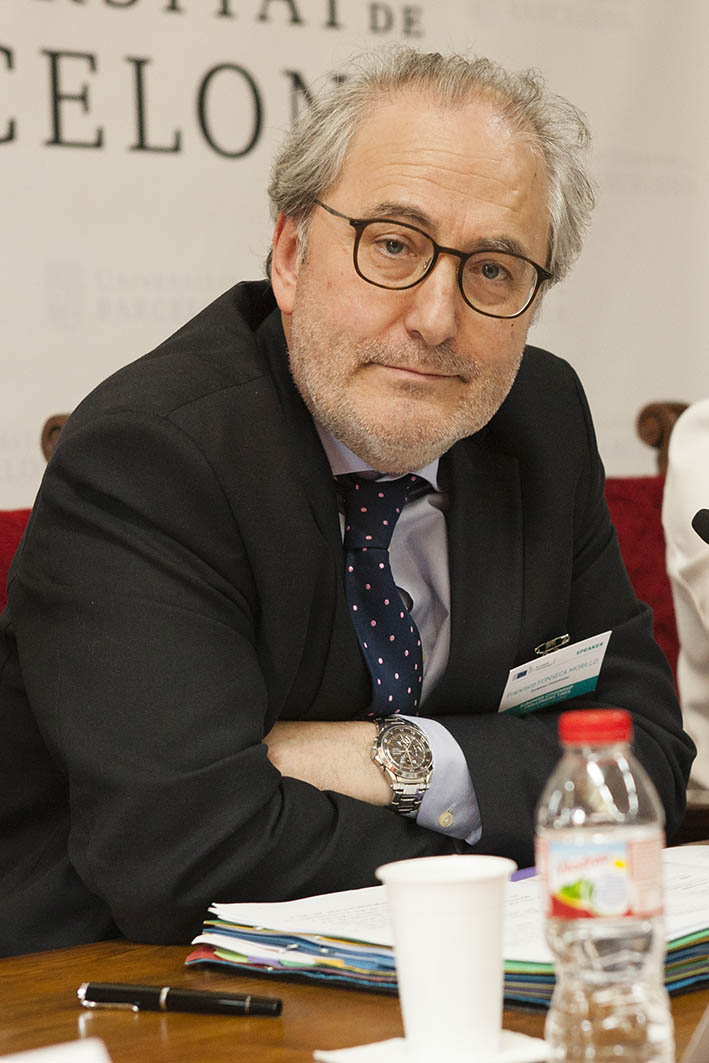
Francisco Fonseca Morillo - © Teresa Estrada / European Commission
Francisco Fonseca Morillo (Deputy Director-General of Justice and Consumers of the European Commission) closed the first day of the conference expressing his sincere appreciation for the stimulating debates. “The debates of today are testimony to the rich and vibrant civil society that exists in Europe”. He asserted that the discussions held during the conference also “manifest that the European Union can be stronger if the voices of citizenship are listened to”. Coming to a close, Fonseca Morillo reminded the audience of the necessity of working “for a common interest”, going beyond the agreements or disagreements and instead focusing on the debate. “Events like this contribute to a more cooperative European space”, he said, stressing “the important feedback” of the discussions to shape European policies and funding on issues of citizenship.
